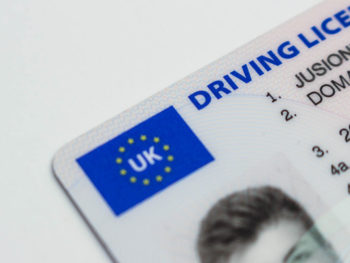The DVLA has issued a call for evidence regarding driver licensing for people with medical conditions ahead of potential changes.

While the DVLA is responsible for driver licensing in Britain, the call for evidence, which is open until 22 October 2023, asks for external views on where policy or legislative changes may be able to improve outcomes for drivers and other road users.
Currently, the law places a legal obligation on a driver to tell the DVLA if a new medical condition develops or if an existing medical condition gets worse. However, there are calls for the General Medical Council and DVLA to update the licensing guidance for medical conditions and fitness to drive. In some other countries, there is a legal obligation on doctors to inform the driver licensing authority if someone has a medical condition that might make them unfit to drive.
Roads Minister Richard Holden said: “As the volume and complexity of driving licence applications or renewals where the applicant has one or more medical condition increases, the Government believes that the time is right to review the existing legal framework. However, we recognise that there are many people and organisations with a wide range of expertise that might have views or ideas that they wish to share and that is why we are launching this call for evidence. We want to understand any opportunities for change in this area and we need your help with that.”
The call for evidence has been greeted by an independent road safety campaigner who says the current “flawed” referral policy for drivers not medically fit to drive is costing lives.
Meera Naran MBE previously secured government backing for an 18-point action plan around smart motorways and £900m of funding for road safety. She is now calling for an update in policies as a part of her on-going campaign for Safer Drivers on Safer Roads as well as greater awareness of the risks posed by driving when medically unfit, supported by the AA Charitable Trust.
Meera has warned that processes governing policy for healthcare professionals to refer drivers with neurocognitive disorders to the DVLA need to be more joined-up. Currently, no concrete data is stored by the DVLA for those with a driving license diagnosed with Parkinson’s Disease or Dementia.
Having lost her eight-year-old son Dev, in a tragic traffic collision five years ago, Meera Naran wants the current referral policy for those with conditions such as Parkinson’s Disease, Dementia or Alzheimer’s to be updated. Dev Naran died in a traffic collision on a stretch of the M6 near Birmingham on 31 May 2018 when a truck collided with the stationery car that he was in.
Meera is using the fifth year since her son’s death to highlight the need for a new framework to transfer information about drivers diagnosed with certain medical conditions that impact their driving from medical staff to the DVLA.
By 2035 there will be 21 million older drivers on the UK’s roads, and it is forecast that the number of those with dementia will exceed two million by 2051. But worryingly, there are no precise figures which show how many older drivers diagnosed with neurocognitive disorders, currently have licences.
Despite the General Medical Council updating their guidance patients’ fitness to drive to the DVLA in 2017, there are no medical checks required to confirm that someone is fit to drive. Current legislation states it is up to the individual to notify the government agency, despite calls from coroners to the contrary.
In 2020, there were 174 fatal collisions caused by drivers over the age of 70. Government figures also show that “driver illness or disability (mental or physical)” was the fourth most common contributing factor in these deaths.
Under current laws, drivers over 70 are required to apply for a new licence every three years. However, there are no medical checks required to confirm they are fit to drive, which is instead left up to the self-declaration of the motorist.
Meera Naran said: “If there was more guidance and support on how to discuss these matters, and better communication between medical and licensing teams, it would improve safety for everyone.”
The AA Charitable Trust is backing her awareness campaign about the dangers of being medically unfit to drive.
Edmund King OBE, director of the trust, said: “Doctors have a role to play in advising, and reporting to the DVLA, when medical conditions, such as dementia or Alzheimer’s, will affect their patient’s fitness to drive. This can’t just rely on a self-declaration. These are not easy conversations to have but greater awareness is a key step towards reducing the risk medically unfit drivers pose to other road users.”
The DVLA call for evidence on driver licensing for people with medical conditions is open until 22 October 2023. More details are here.

